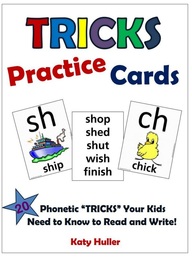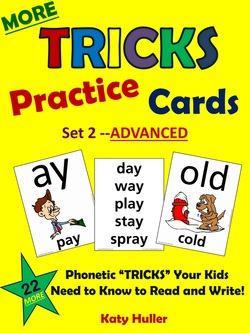Is Your Child Struggling with Homework Assignments?
|
Is your child struggling?
|
If you answered yes to any of the above questions, your child may be in need of extra help.
Act Now!
Many kids end up struggling for years before getting help. This only puts them further behind their peers. It can also permanently ingrain bad habits. Even worse, it can lead to an increasing sense of inferiority and failure. If your child is struggling, the time to help is NOW. Fixing small problems early on can help you avoid big problems later.
Be Patient...and Kind!
Kids don't struggle on purpose. While you try to figure out what is going wrong, remember to be patient and kind when trying to help your child get through his or her daily homework assignments. Take a deep breath, give yourself a time out, tag team with another trusted adult, but don't lose your patience, raise your voice, or belittle your child. That will only make things worse! Instead, try to get at the root of the problem so you can offer the right sort of support. Figure out why your child is struggling and get your child the help he or she needs to end that struggle as soon as you can.
Many kids end up struggling for years before getting help. This only puts them further behind their peers. It can also permanently ingrain bad habits. Even worse, it can lead to an increasing sense of inferiority and failure. If your child is struggling, the time to help is NOW. Fixing small problems early on can help you avoid big problems later.
Be Patient...and Kind!
Kids don't struggle on purpose. While you try to figure out what is going wrong, remember to be patient and kind when trying to help your child get through his or her daily homework assignments. Take a deep breath, give yourself a time out, tag team with another trusted adult, but don't lose your patience, raise your voice, or belittle your child. That will only make things worse! Instead, try to get at the root of the problem so you can offer the right sort of support. Figure out why your child is struggling and get your child the help he or she needs to end that struggle as soon as you can.
My Child's Homework Takes FOREVER...And Leaves Us BOTH In Tears!!!
|
Find Out Why!
If your child is struggling to complete reading and writing assignments (in class or at home), make sure your child has the knowledge he or she needs to complete the necessary work. Ask Yourself:
|
Usually homework trauma can be traced back to a weakness in one of these areas. If your child can read well, write well, and understand the material but is still having trouble completing assignments, request a conference with your child's teacher to see if she or he has any ideas about how to make completing the assignments easier. You might also want to talk to your child's pediatrician to rule out any possible attention deficits, behavior disorders, and/or learning disabilities.
I Think My Child Is Struggling to Read and/or Write!
Is Your Child Struggling to Read and/or Write?
Many kids struggle to complete their work because of reading and/or writing difficulties. If your child is struggling to read and/or write, it's important to figure out why as soon as possible. A lot of kids struggle because they simply don't have the tools they need to read and write unfamiliar words. This leaves them either shrugging their shoulders when asked to read and write words they haven't memorized or blindly guessing their way through passages.
To see if your child has the tools he or she needs to read and write, you'll need to check your child's knowledge of several things.
Many kids struggle to complete their work because of reading and/or writing difficulties. If your child is struggling to read and/or write, it's important to figure out why as soon as possible. A lot of kids struggle because they simply don't have the tools they need to read and write unfamiliar words. This leaves them either shrugging their shoulders when asked to read and write words they haven't memorized or blindly guessing their way through passages.
To see if your child has the tools he or she needs to read and write, you'll need to check your child's knowledge of several things.
- Find out if your child knows all of the letters and sounds of the alphabet. (Your child should be able to name the letter and sound immediately upon seeing each letter.)
- See if your child understands how to look at simple words and sound them out. (Your child should immediately begin sounding out unfamiliar words. Ask him or her to read simple cvc words such as wet, dim, sob, lag, and tub.)
- See if your child can write simple words. Call out words such as bag, rip, pen, tux, and mob, and see what your child writes. (Your child should be able to sound them out and write them.)
- If your child can read and write simple words, see if your child can read and/or write words with "tricks" (letters that work together to make new sounds, such as er, or, ou, oo, th, sh, ch, ow, gh, etc). To do this, see if your child can read and write words such as sister, porch, mouth, hook, better, order, sharp, and every. For more advanced readers and writers, you will need to ask much more difficult words such as: disorder, drenched, florist, crouching, argue, bundle, and eagerly. (If your child knows the "tricks," he or she should be able to easily read and write them.)
- Finally, see if your child is familiar with "outlaw" words that don't follow any set tricks or patterns -- words such as though, would, could, eight, one, two, etc.
My Child Doesn't Know the "TRICKS!"
Almost all of the kids who come to me for tutoring services are lacking "trick" knowledge. More often than not, these kids have "learned to read" through sight word practice and/or "guided reading." Because they have been forced to memorize words and/or guess their way through text in order to keep up with their teachers, many don't really get how letters and sounds work together to make words. Because of this, they tend to "guess read" and/or rely on their memories for spelling clues. Unfortunately, this lack of knowledge often keeps them from reading and writing accurately and fluently. This breach in knowledge also causes many comprehension issues.
If you find your child is missing "trick" knowledge, use my FREE Word Card Program to help teach him or her the "tricks." This can make a huge difference! After all, "tricks" are in almost every word! Make sure your kids know them!
If you find your child is missing "trick" knowledge, use my FREE Word Card Program to help teach him or her the "tricks." This can make a huge difference! After all, "tricks" are in almost every word! Make sure your kids know them!
Utilize Our FREE Word Program!
Directions for utilizing Free Word Card Program:
|
Teach Your Kids the TRICKS!
Unless you want your kids to have to memorize and/or guess their way through everything they ever want to read, your kids need to know the "tricks." Teach them along with letters and sounds. They are crucial to your child's reading and writing development.
|
Help! My Child Is Falling Further and Further Behind!
|
If you find your child knows how to read and write words but still can't seem to do so as well as his or her peers, you need to look into other possibilities.
|





